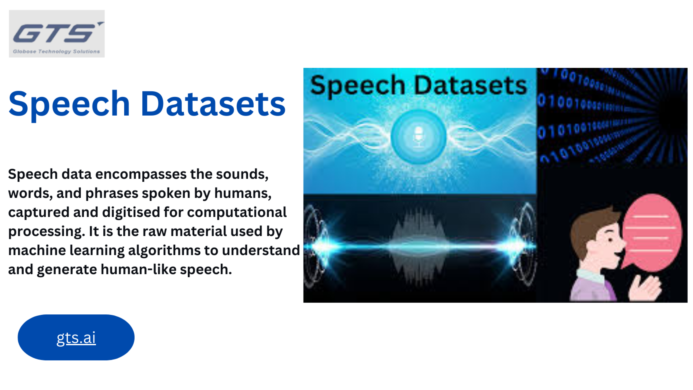
blog address: https://gts.ai/services/speech-data-collection/
blog details: Speech recognition and natural language processing have witnessed remarkable advancements in recent years, largely driven by the availability of large, high-quality speech datasets. These datasets play a crucial role in training and evaluating speech recognition systems, voice assistants, and other speech-related applications. Let's delve into the world of speech datasets, exploring their evolution, diversity, and impact.
Evolution of Speech Datasets
The early days of speech recognition research were marked by a scarcity of data, limiting the complexity and accuracy of models. However, with the advent of digital recording technologies and the internet, researchers gained access to more extensive and diverse datasets. The release of datasets like TIMIT in the 1980s and more recently, the LibriSpeech dataset, marked significant milestones in the field.
The development of deep learning techniques further fueled the demand for larger datasets. Projects like the Switchboard corpus, which contains thousands of hours of conversational speech, and the Common Voice dataset from Mozilla, which is a crowdsourced collection of voice recordings, have become invaluable resources for training cutting-edge speech recognition models.
Diversity in Speech Datasets
Speech datasets exhibit a rich diversity in terms of languages, accents, and recording conditions. While many datasets focus on English speech, efforts are underway to create datasets in other languages. The VoxCeleb dataset, for instance, contains speech recordings from celebrities in multiple languages, enabling research in speaker recognition and multilingual speech processing.
Datasets also vary in terms of the context and environment of recordings. The CHiME dataset, for example, includes speech recorded in noisy environments, challenging researchers to develop robust speech recognition systems. Similarly, datasets like the BabyTalk corpus focus on child speech, posing unique challenges due to the developmental nature of children's speech patterns.
Impact and Future Directions
The availability of diverse and expansive speech datasets has led to significant advancements in speech recognition accuracy and robustness. State-of-the-art models like Transformers and RNNs have been trained on these datasets, achieving human-level performance in some tasks. Furthermore, datasets like LibriTTS and LJSpeech have driven progress in text-to-speech synthesis, enabling more natural-sounding voice assistants and audiobook narrations.
Looking ahead, the field of speech datasets is expected to continue evolving. Efforts are underway to create more inclusive datasets, representing a wider range of accents, dialects, and languages. Additionally, there is a growing focus on privacy and ethical considerations, with projects like the Mozilla Common Voice dataset emphasising data transparency and user consent.
In conclusion, speech datasets are foundational to the advancement of speech technology. Their evolution, diversity, and impact have shaped the field of speech recognition and natural language processing, paving the way for more sophisticated and inclusive voice-driven applications.
keywords: Speech Datasets
member since: Apr 19, 2024 | Viewed: 66


